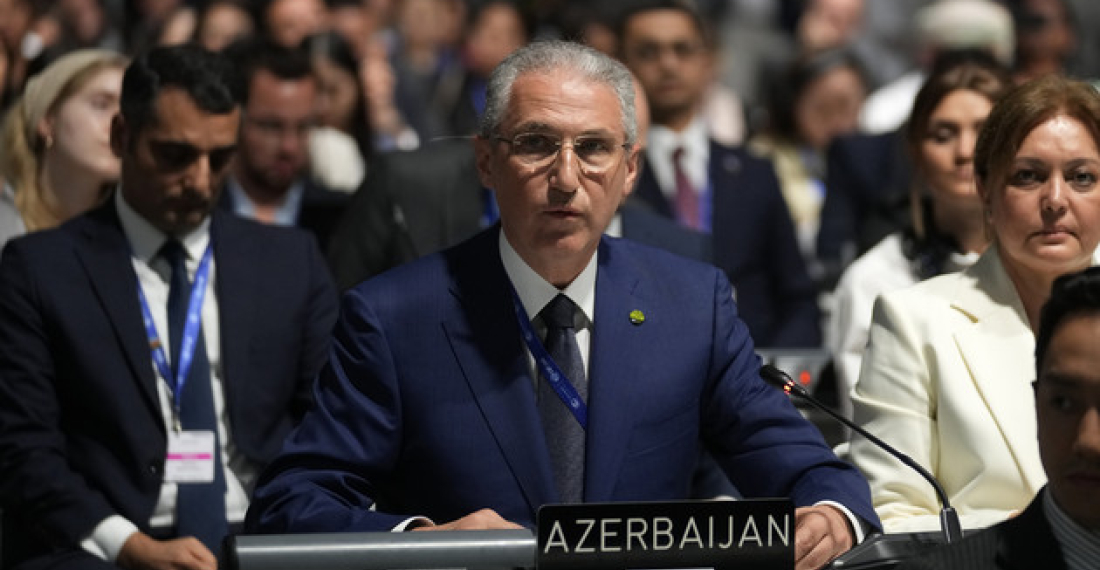Azerbaijan's Environment Minister, Mukhtar Babayev, has been appointed as the President of COP29 the Climate Change convention which is expected to convene in the Azerbaijani capital, Baku, in December of 2024.
In a decree published just before the end of 2023, Azerbaijani president Ilham Aliyev said that Azerbaijan attaches special importance to environmental protection and climate change prevention.
"Determining one of Azerbaijan's national priorities for socio-economic development until 2030 as a "country of clean environment and green growth", declaring the territories freed from occupation and the Nakhchivan Autonomous Republic a green energy zone, 2024 as the "Year of Solidarity for a Green World" ” announcement is a manifestation of purposeful and consistent state policy in this field.
Azerbaijan's activities in the field of climate change prevention are highly appreciated by the international community. For this reason, the 29th session of the Conference of the Parties to the United Nations Framework Convention on Climate Change (COP29), which is considered one of the most prestigious events in the world due to the number and level of participants and the relevance of the issues discussed, will be held in Azerbaijan in 2024 by the unanimous decision of the countries of the world.
Azerbaijan will take all necessary measures to organize this prestigious session at a high level, which is an indicator of the great respect and trust of the international community, and to conclude it with successful results for our country and humanity."
Babayev will have the momentous task of organising the biggest international event ever organised in the South Caucasus and will be responsible for both the political preparation for COP29 as well as the logistical issues related to it.
Mukhtar Babayev worked for the country’s state-owned oil company SOCAR for nearly 25 years before taking his current post as minister of ecology and natural resources in 2018.
Babayev, 56, has a degree in political science from Moscow State University and another degree in foreign economic relations from Azerbaijan State University of Economics.
Azerbaijan’s deputy foreign minister, Yalchin Rafiyev, will serve as lead negotiator of the talks, which begin in November.
Babayev’s chief of staff, Rashad Allahverdiyev, confirmed the appointments and said countries, observer groups and the U.N. climate secretariat had been notified of the selection.






